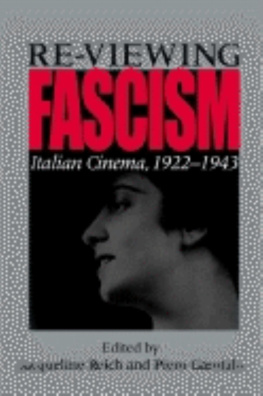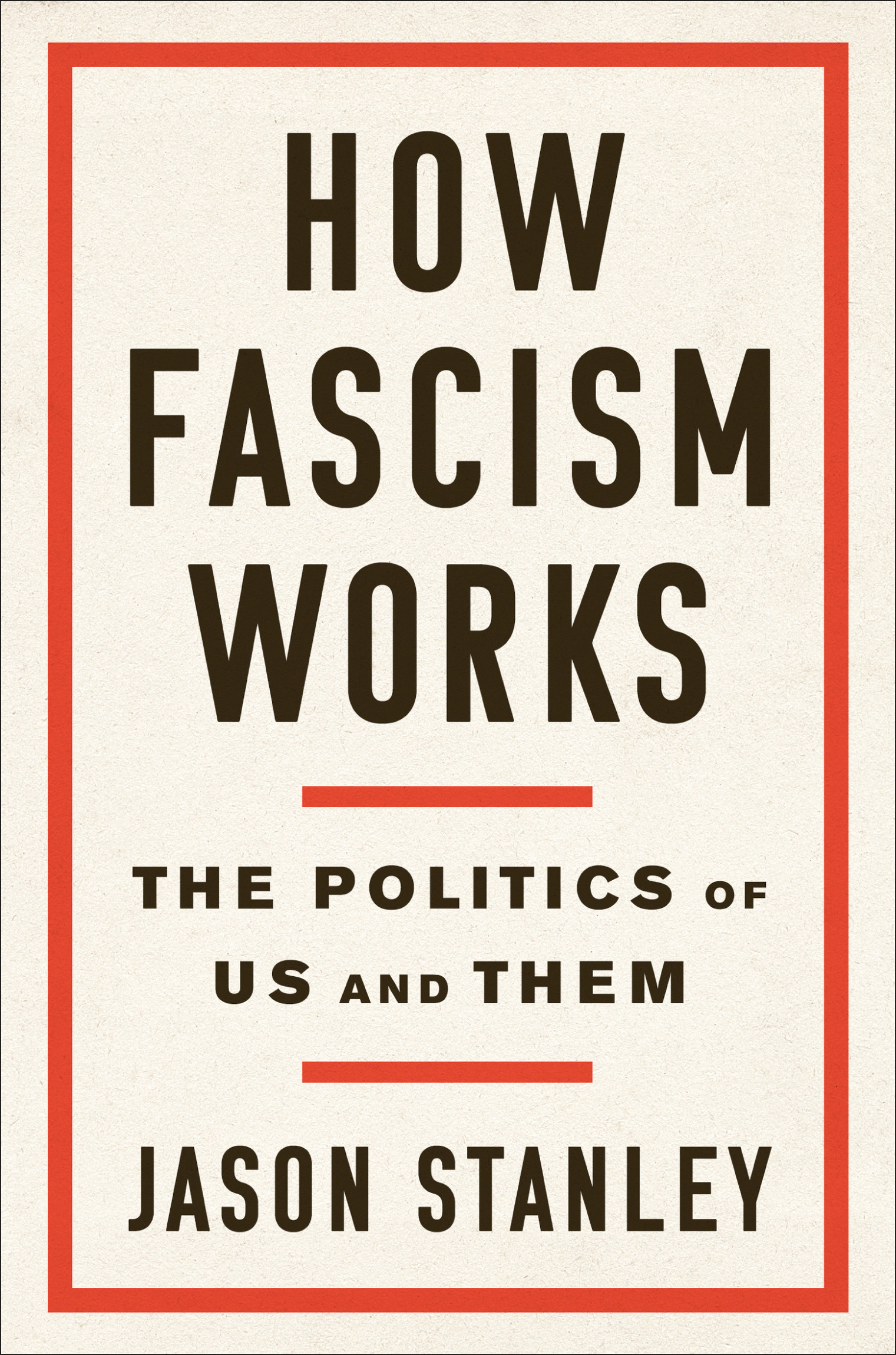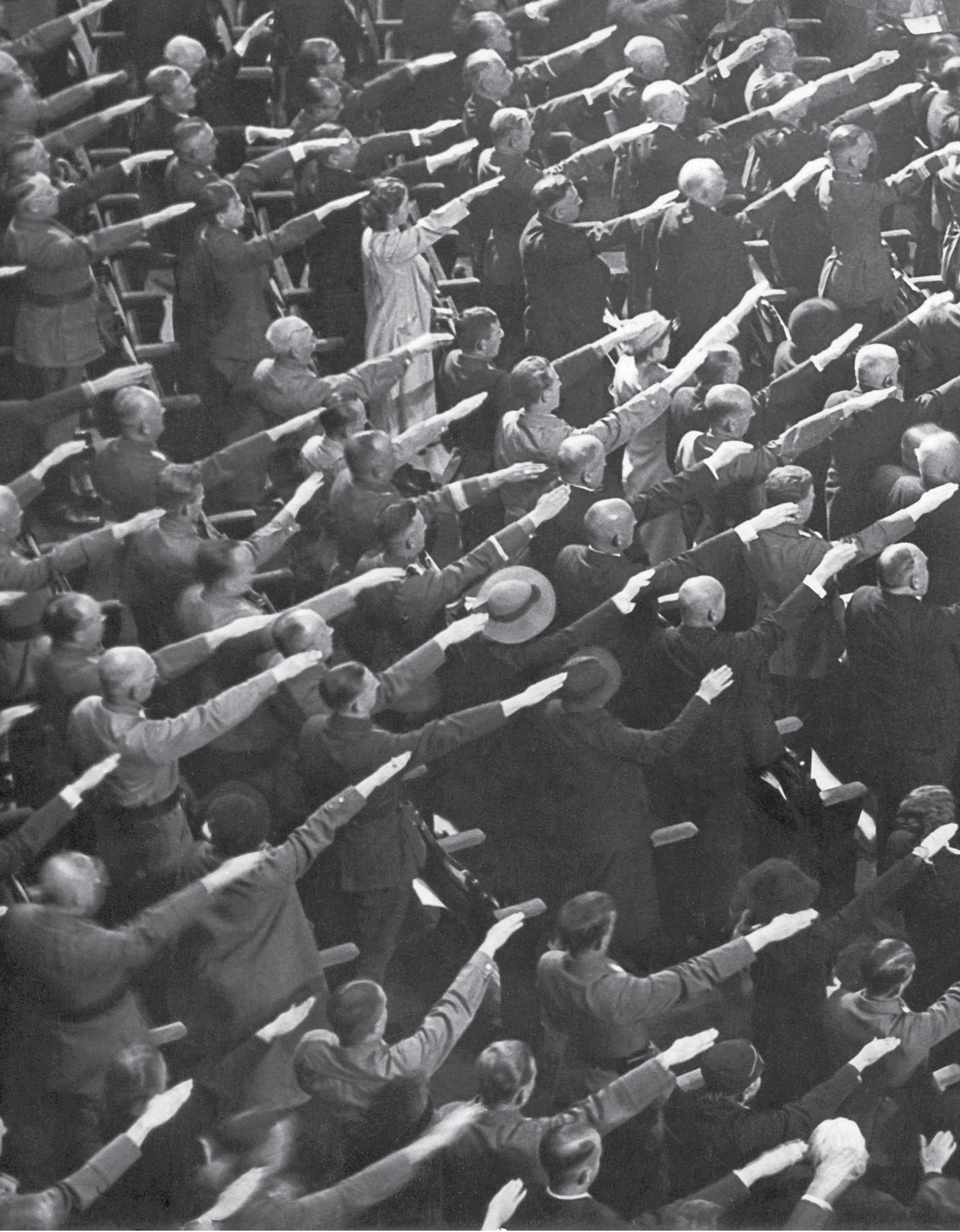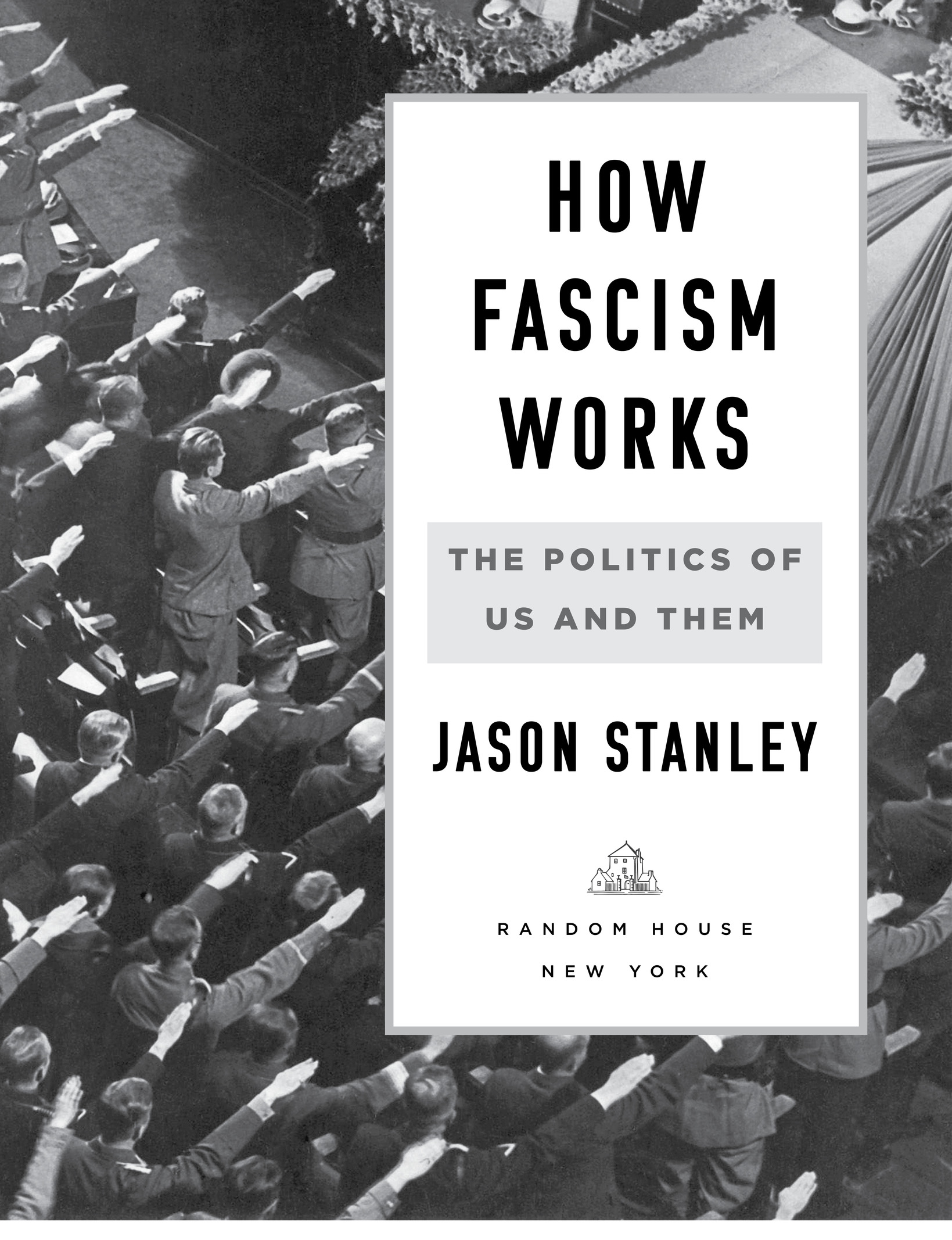Jason Stanley - How Fascism Works: The Politics of Us and Them
Here you can read online Jason Stanley - How Fascism Works: The Politics of Us and Them full text of the book (entire story) in english for free. Download pdf and epub, get meaning, cover and reviews about this ebook. year: 2018, publisher: Random House, genre: Politics. Description of the work, (preface) as well as reviews are available. Best literature library LitArk.com created for fans of good reading and offers a wide selection of genres:
Romance novel
Science fiction
Adventure
Detective
Science
History
Home and family
Prose
Art
Politics
Computer
Non-fiction
Religion
Business
Children
Humor
Choose a favorite category and find really read worthwhile books. Enjoy immersion in the world of imagination, feel the emotions of the characters or learn something new for yourself, make an fascinating discovery.

- Book:How Fascism Works: The Politics of Us and Them
- Author:
- Publisher:Random House
- Genre:
- Year:2018
- Rating:3 / 5
- Favourites:Add to favourites
- Your mark:
How Fascism Works: The Politics of Us and Them: summary, description and annotation
We offer to read an annotation, description, summary or preface (depends on what the author of the book "How Fascism Works: The Politics of Us and Them" wrote himself). If you haven't found the necessary information about the book — write in the comments, we will try to find it.
This is an important and essential book.--Errol Morris, filmmaker and author ofThe Ashtray
Fascist politics are running rampant in America today--and spreading around the world. A Yale philosopher identifies the ten pillars of fascist politics, and charts their horrifying rise and deep history.
As the child of refugees of World War II Europe and a renowned philosopher and scholar of propaganda, Jason Stanley has a deep understanding of how democratic societies can be vulnerable to fascism: Nations dont have to be fascist to suffer from fascist politics. In fact, fascisms roots have been present in the United States for more than a century. Alarmed by the pervasive rise of fascist tactics both at home and around the globe, Stanley focuses here on the structures that unite them, laying out and analyzing the ten pillars of fascist politics--the language and beliefs that separate people into an us and a them. He knits together reflections on history, philosophy, sociology, and critical race theory with stories from contemporary Hungary, Poland, India, Myanmar, and the United States, among other nations. He makes clear the immense danger of underestimating the cumulative power of these tactics, which include exploiting a mythic version of a nations past; propaganda that twists the language of democratic ideals against themselves; anti-intellectualism directed against universities and experts; law and order politics predicated on the assumption that members of minority groups are criminals; and fierce attacks on labor groups and welfare. These mechanisms all build on one another, creating and reinforcing divisions and shaping a society vulnerable to the appeals of authoritarian leadership.
By uncovering disturbing patterns that are as prevalent today as ever, Stanley reveals that the stuff of politics--charged by rhetoric and myth--can quickly become policy and reality. Only by recognizing fascists politics, he argues, may we resist its most harmful effects and return to democratic ideals.
With unsettling insight and disturbing clarity,How Fascism Worksis an essential guidebook to our current national dilemma of democracy vs. authoritarianism.--William Jelani Cobb, author ofThe Substance of Hope
Jason Stanley: author's other books
Who wrote How Fascism Works: The Politics of Us and Them? Find out the surname, the name of the author of the book and a list of all author's works by series.

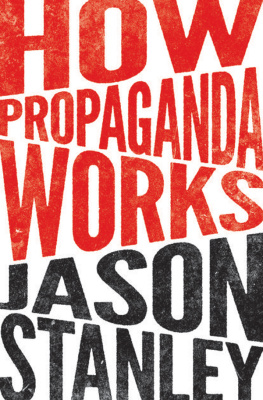
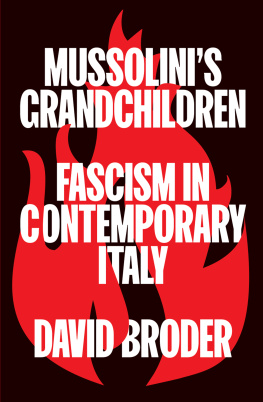
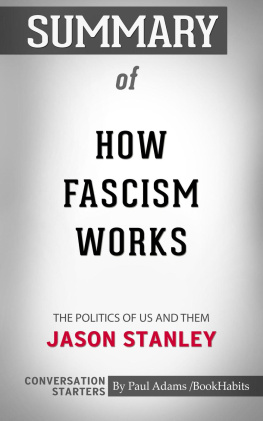
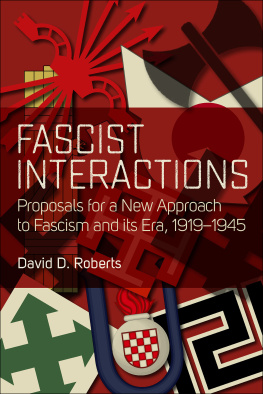
![Patrick G. Zander - Fascism through History [2 volumes]: Culture, Ideology, and Daily Life](/uploads/posts/book/262756/thumbs/patrick-g-zander-fascism-through-history-2.jpg)

